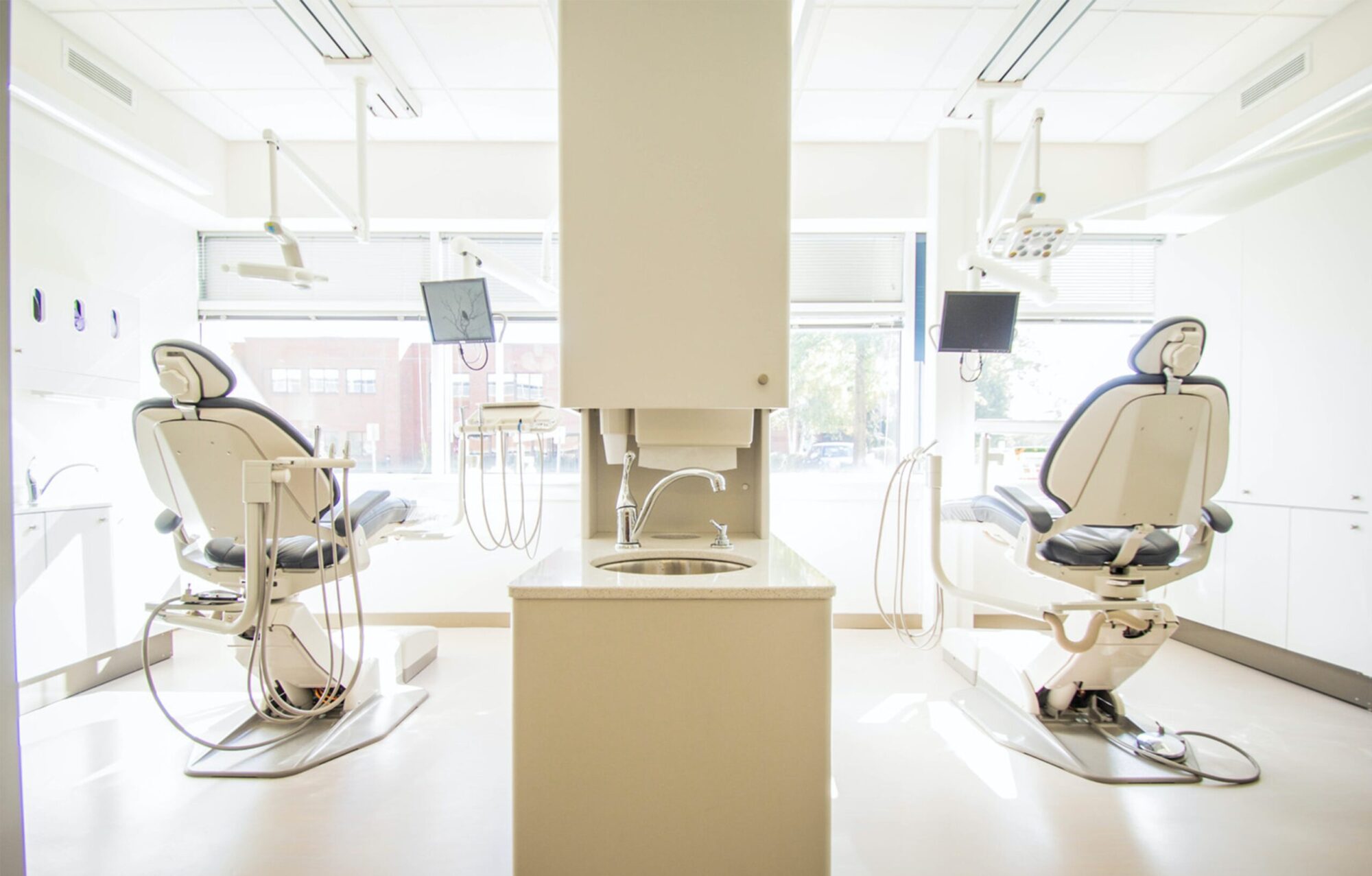Welcome to the third blog post about the most common services in dentistry! Today’s topic will be all about our GUM HEALTH! In this post, I’ll explain the difference between gingivitis and gum disease as well as why one would need a deep cleaning rather than a regular cleaning.

Let’s start out by defining what healthy gums are. Healthy gums consist of the absence of dental plaque and calculus (tartar) and inflammation (swelling and bleeding). Someone who is consistent with brushing, flossing, and going to the dentist for their 6-month dental cleanings will most likely have healthy gums. Where you run into trouble is when you don’t maintain good oral hygiene at home!
How Does Dental Plaque Form?
When we eat food, our saliva mixes with the food debris, forming a sticky substance called plaque. If left uncleaned, plaque mixes with the calcium phosphate from our saliva, forming a hard substance called tartar (also known as calculus). Tartar is dangerous because it contains millions of bacteria that causes your gums to swell and bleed. This is called gingivitis – the inflammation of the gums due to plaque and calculus.
Fortunately, gingivitis is REVERSIBLE. Once we remove the plaque and tartar stuck on our teeth, our gums go back to a healthy state. In other words, the absence of tartar and plaque leads to healthy gums. Healthy gums do not bleed or appear swollen.
However, when gingivitis is not addressed, it can lead to a more serious chronic dental issue called periodontal disease, also known as gum disease. Gum disease develops when the tartar is not removed. Therefore, the bacteria continue to cause further inflammation underneath the gums and into the jawbone. Untreated gum disease can lead to tooth loss because the bacteria in the tartar gradually eats away at the jawbone and the surrounding tissues that connect your teeth to your bone.

While gingivitis is reversible, periodontal disease is IRREVERSIBLE. This is because once the jawbone has been eaten away by the bacteria, it is gone. You can’t grow back bone. Thus, it is CRUCIAL you address gum disease in its early stages or prevent it from developing at all.
How Do I Prevent Gum Disease?
Maintaining healthy gums is very straightforward. Brush and floss daily. Go to the dentist every six months for a dental cleaning.
Unfortunately, most people do not practice healthy dental habits or seek regular dental care. A person most at risk for gum disease is one who neither practices good at-home oral hygiene nor maintains a regular dental routine. Other risk factors for gum disease include smoking, uncontrolled diabetes, and poor genetics.
What is the difference between a regular dental cleaning vs. a DEEP cleaning?
Regular Dental Cleaning (also known as Prophylaxis):

During a regular dental cleaning, the ultrasonic scaler is used to remove plaque and tartar abovethe gums. A regular dental cleaning is recommended only for people with healthy gums or those with mild gingivitis because the plaque and tartar are localized above the gums. A regular cleaning is NOT recommended for people with periodontal disease because the ultrasonic scaler does not reach deep enough to clean and remove the bacteria that is causing bone loss.
Deep Cleaning (also known as Scaling and Root Planing):

During a deep cleaning, the ultrasonic scaler is used to clean and remove tartar and bacteria under the gums. This is the type of dental cleaning required for people with gum disease because there is tartar and bacteria attached to the root surfaces of the teeth underneath the gums. A deep cleaning takes longer because it is a thorough cleaning and removal of tartar surrounding the underlying gums and jawbone.
FREQUENTLY ASKED QUESTIONS:
Do I qualify for regular dental cleanings?
Ask your dentist! Your dentist should be able to evaluate your gum health using your dental x-rays and clinical exam. If you are someone who goes to the dentist every six months and practices good oral hygiene at home, you will most likely only need a regular dental cleaning. If you have a lot of bleeding, swelling, and calculus under the gums, you will most likely need a deep cleaning.
How do I know if I have gum disease?
Do your gums bleed when you brush or floss? Do you suffer from bad breath? Has it been years since you have had a dental cleaning? If you have answered “yes” to any of these, you may be suffering from early stages of gum disease! Schedule a dental visit right away. It is important that you address gum disease in its early stages before too much damage is done to your surrounding gums and bone.
How often do I need a deep clean?
In an ideal world with an ideal patient, you will only need a deep clean once in your life. This is possible if you commit to practicing excellent oral hygiene every day and maintain regular cleanings. Tartar can reform if you don’t brush or floss every day, so thorough oral hygiene care is a must!
Does a deep cleaning hurt?
Nope! Almost always, local anesthesia will be used to perform a deep cleaning. This is to make sure we can clean adequately without causing you discomfort!
Is deep cleaning expensive?
Your dental insurance will often cover a good portion of your deep clean. Ask your dentist to see your dental coverage!

Ready to get your teeth cleaned? Book online today at BMEDental.com!


